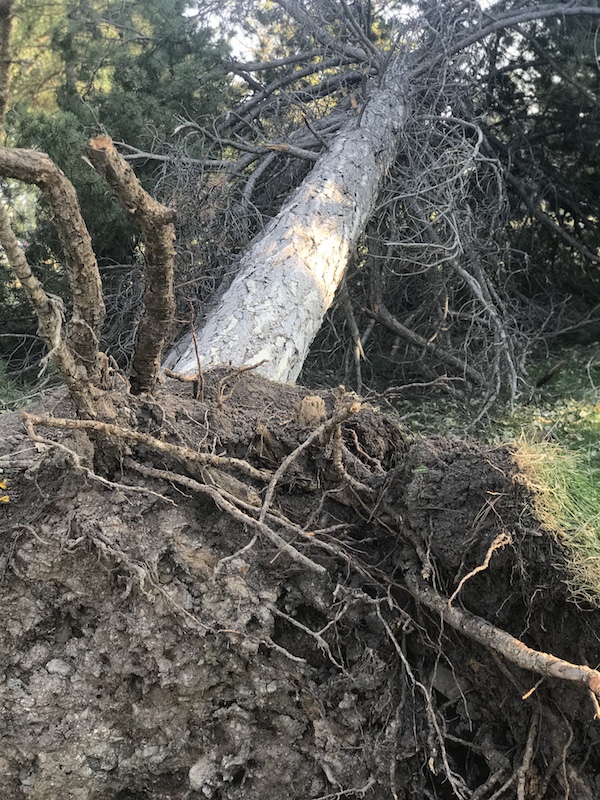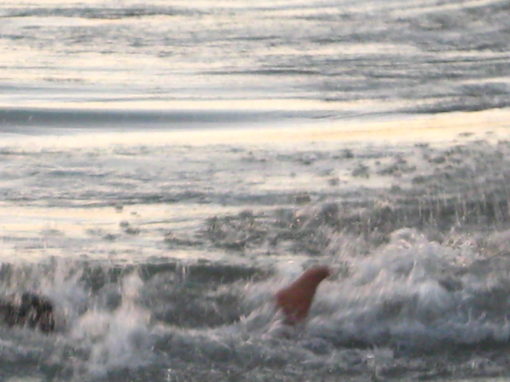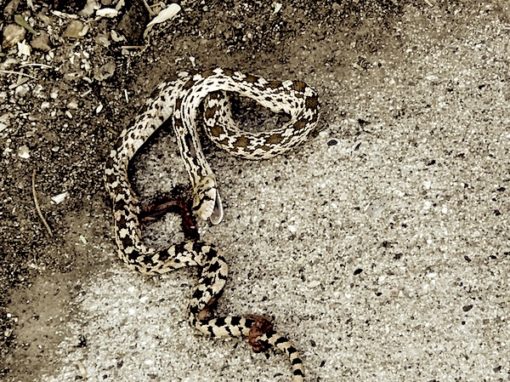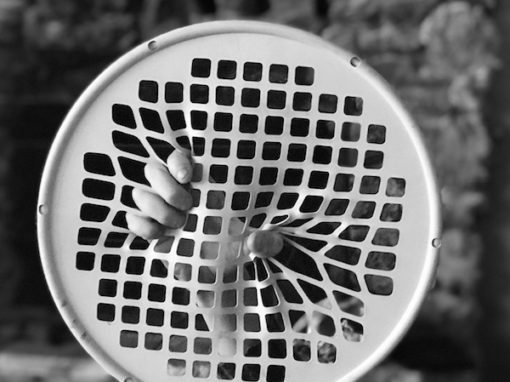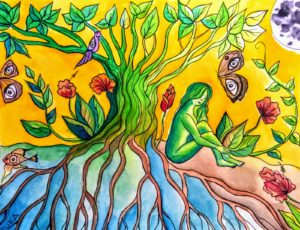We move through the sagebrush corpse. Weeds tumble, holding onto themselves, their stick fingers grip their stick bones, pushed by 100 mph gusts. Winds howl at the moon and the sun; their screaming is indiscriminate. I have learned to think of wind as the voice of Mother Earth. When we cannot hear her in the smaller, more polite warnings, she tires of being subtle. She is woman. There is no time for silence.
It is my first time in Salt Lake City. I arrived three days before the winds and have stayed since. I came from California, driving ahead of red skies. Those same red skies, painted by fires that start because of humans—our actions, inactions, grievances—are dipping the suns in crimson across the country. Even the skies of Pennsylvania are smoking. That tired, old orb hangs heavy in the heavens, like an ornament weighing down a flimsy Christmas tree branch. Almost about to break, it sighs its way down into a sunset grave.
The morning the voice of the Mother screamed through this city I was supposed to go on a bike ride. My friend (who is substantially more mountain-bike experienced) and I were going to explore Shore Line ridge in the Foothills. I pulled on my bike shorts with caution, looking outside as branches cracked and telephone wires flopped flaccid in the wind. When Mother Nature makes a demand, she reminds us how insignificant many of our technological advances are. I worried, as a messaged my friend, that she would just see this as yet another “fun challenge” to add to the course. My Uncle, who I’m staying with, watched through the window with caution. “I wouldn’t go up there if I were you; you can see what the wind is doing here. Up there, you’re going to get blown away.” My friend acquiesced; this was beyond the scope of human challenge.
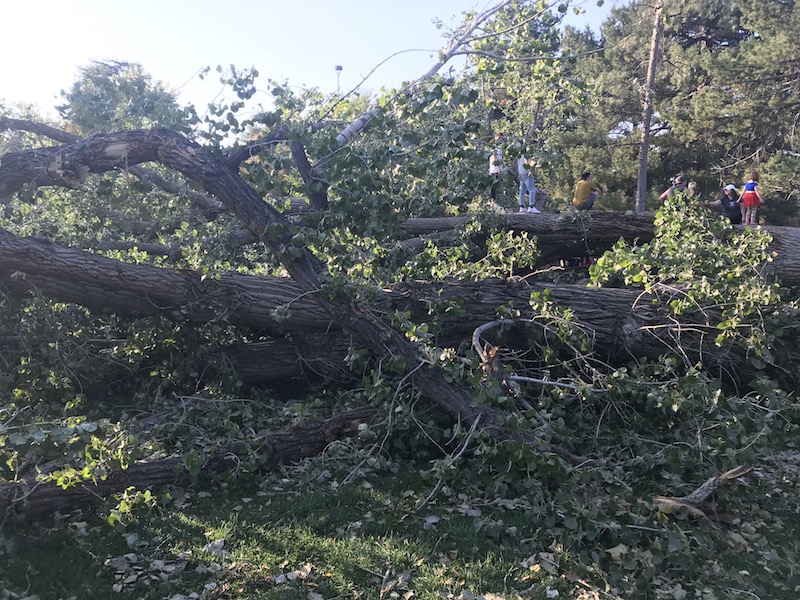
What is it, I wondered that day and now, that Mother Nature is trying to blow away? Is it us? The weight of us, the imprint of us. A bellowing gust of wind is enough to uproot trees eight feet in diameter. Taller than any human. All day, the branches rattled, hammocks hiccuped, car tarps flew away, cats dug claws into dirt, and roofs gave way under the weight of fallen sentinels. It was a day to stay inside the house of myself.
The day after the storm, I walked the remains. Corpsed and crumpled, cracked and splintered. I found that the sturdier the tree, it seemed, the more likely it was to fall. The overturned giants shivered on their sides, their private parts exposed. Roots dangling out, labial and tentacular, shaking in the cold.
A root has never experienced the topside world before. All it knows is the wet underground, the worms and mycelium, the ceaseless hug of humus. Next to these grandmotherly oaks, the brittle skin of the sycamore also cracked, but many of the young aspens, willowy and flexible like groves of alder, stood upright. The sunflowers, of which there are so many in this state, also remained standing. The old giants fall and the young adapters remain.
A few days later, I was talking with a woman who works at an herb store. “This is a metaphor,” she told me. These fallen trees are reminders, warnings, that we must heed.
A tree is not meant to grow alone. A tree is meant to grow in the forest. When a tree falls, even the largest one, it means it does not have anything else to hold onto or anything to hold onto it.
Wavering, it falls. How many of us have been falling because of depression and anxiety, race and class, ability and gender, fear and loss, across the plains of this season, across the spread of human development? We see difference rather than sameness. We create systems of power around those differences. We blind ourselves to our innate belonging.
The trees, uprooted, remind me this morning: the further we move from one another, the weaker our roots become. Let it be a warning, Mother Nature sighed as she blew away. It is time you all learn how to listen.
